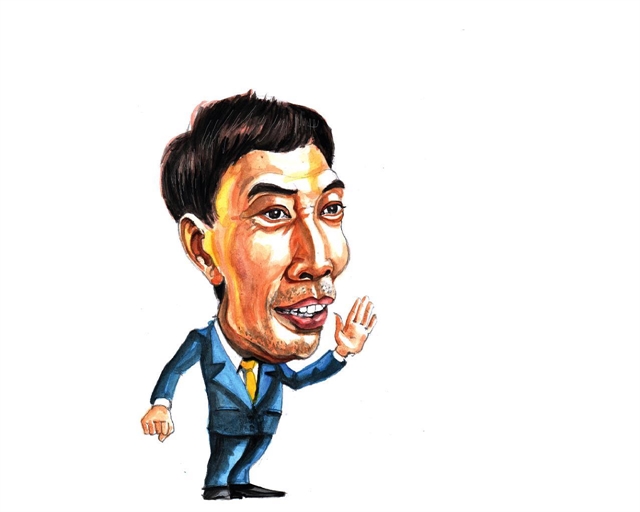Analyst's Pick: In order to ensure benefits of bondholders, they should be provided with sufficient information of legality of the assets used for bond swap.

Vo Tri Thanh*
The Government has issued a decree on the amendment, supplementation and cancellation of some articles of Decree No. 65/2022/ND-CP on private placement and trading of privately placed corporate bonds in the domestic market and offering of corporate bonds to the international market.
Under the new Decree No. 80/2023/ND-CP, which took effect on March 5, all amendments and supplements proposed by the Ministry of Finance were approved.
First, regulations on the maturity of the issued bonds were changed, allowing enterprises to change the terms and conditions of bonds. In case of extending the bond's term, the maximum period must not exceed two years compared to the term in the bond issuance plan announced to investors.
If the bondholders do not agree to change the bond's terms and conditions, the issuing enterprise is responsible for negotiating to ensure the interests of investors. In case a bondholder does not accept the negotiation plan, the enterprise must fulfill all obligations towards the bondholder according to the bond issuance plan announced to investors.
Second, the new decree also cancelled a number of regulations, including those on determining the status of professional securities investors as individuals and corporate credit ratings.
Notably, the third regulation is that for bonds placed in the domestic market, in case the issuing enterprise is unable to pay in full and on time the bond principal and interest according to the issuance plan announced to investors, they are allowed to negotiate with bondholders to swap bond principals and interests with other assets, including real estate.
This is much expected by investors and bond issuers as it will help businesses deal with debts in the context of low level of liquidity in the market.
In reality, negotiations between bond issuers and bondholders have taken place recently.
EGROUP Education Group Joint Stock Company, the parent company of Apax Holdings Investment Joint Stock Company (IBC), has reportedly proposed to fulfil its bond obligations by converting bond payments into real estate.
There are two real estate projects selected by EGROUP to “barter” with investors. The swap plan is given in detail for investors to consider.
A project in Thanh Hoa has 75 land lots with areas ranging from 100 to 194sq.m. The selling price is VND300 million, but investors have to pay VND200 million for the land lot to get the red book. This plan only applies to investors who own bonds worth less than VND1 billion.
The second project consists of 27 resort villas in Chuong My, Ha Noi, which is applied to investors with outstanding loans of more than VND1 billion. Investors can swap the bond debts for the properties but still have to pay VND6.5 billion or more depending on the value of each villa as they are priced at a minimum VND12 billion.
As quoted from the Permanent Deputy General Director of EGROUP by cafef.vn, there is now a group of bond investors who accept swaps for 10 lots in the project in Thanh Hoa and six villas in Ha Noi.
If this information is correct, then this may be positive news as the swapping of bond debts to real estate will probably be applied in the near future.
However, no official announcements related to this issue are released on any websites of either EGROUP and APAX Holdings or State management agencies.

Earlier, NoVa Real Estate Investment Group Joint Stock Company (Novaland, HOSE: NVL) sent a letter to bondholders of the NVLH2123009 bond lot worth VND1 trillion of which the maturity date fell on February 12, 2023 to propose a plan to extend the principal payment term in a suitable time or swap the bond principal for real estate products of the group.
However, after completing the consultation with bondholders on February 20, the bondholders’ representative, PetroVietnam Securities Joint Stock Company (PSI), announced that it did not agree with Novaland’s proposal, so the collateral will be handled in accordance with the law.
So far, Novaland has only announced that it has reached only an agreement to swap bonds for shares of two Novaland subsidiaries with a foreign investor (Dallas Vietnam Gamma Ltd).
According to Viet Nam’s credit rating agency FiinRatings, the swap operations have taken place elsewhere and achieved positive results. The agency notes that the option needs consensus between investors and bond issuers.
FiinRatings also reported that the bond default rate in the Chinese market at the end of 2021 was 1.35 per cent. The bond debt restructuring is mainly implemented via self-agreements such as extending debt payments and bond swaps. About 79 per cent of international bond defaults were handled by the bond swap method, and 72 per cent of domestic defaults were resolved by debt extension.
In the case of debt payment extension, the responsibilities and obligations of related sides are not changed but in the case of bond swap for assets, the nature of the relation between bondholders and bond issuers will be completely changed.
In other words, when the bondholder accepts the swap for assets such as real estate, the bond issuer will no longer have any debt obligations, but the bondholder will continue to face other risks such as the price of assets declining or legal issues related to the property.
Therefore, from the perspective of investors, they cannot easily accept the form of exchanging bonds for assets if they feel unsafe. Some of the main reasons are as follows:
First, bondholders will only agree to accept an asset if the asset is discounted sufficiently below market value, to an attractive level. If the swapped asset is real estate, there will be additional costs related to notarisation and taxes, etc, so bondholders and bond issuers must negotiate further to decide which party will bear the cost.
Secondly, if real estate is a project which is in the progress of construction, investors will feel insecure about the property they receive in the future, especially when the business is facing difficulties. The debtor-creditor relationship is also transformed into an investor-customer relationship. The change in relationship between the two sides will lead to more complicated problems, which make investors hesitant to accept a swap. Dealing with the problems will likely take more time and efforts from investors.
Third, businesses often mortgage their assets for bank loans so the property used to swap with bond debt might not be freely transferred right away. Therefore, in order for investors to receive that real estate, they must spend more money to buy the bank debt or accept the debt transferred from the business. Either way, investors ultimately have to spend more money to get that real estate.
This seems quite similar to what is mentioned in EGROUP's bond-to-asset swap plan when investors are limited to the amount of debt solved per property and to actually own the asset, they must pay the rest if the asset is priced at a level higher than the outstanding debt. This is an unfair problem for bond investors.
In order to ensure the benefits of bondholders, they should be provided with sufficient information of legality of the assets used for bond swap.
Though the amendments to Decree 65 were approved as they are necessary and appropriate to help ease pressure on the shoulder of bond issuers and relieve investors of feeling unsecure about their investments, bond debt swap for real estate is only a short-term solution when the problem cannot be solved completely.
This method is only optional and depends on the nature of the business operation and products of each enterprise. So bond issuers must comply with civil laws and related laws regulating the business operation. The Government agencies might take into consideration of temporarily changing some related regulations to make the swap deal run smoothly.
*Vo Tri Thanh is a senior economist at the Central Institute for Economic Management (CIEM) and a member of the National Financial and Monetary Policy Advisory Council. A doctorate in economics from the Australian National University, Thanh mainly undertakes research and provides consultation on issues related to macroeconomic policies, trade liberalisation and international economic integration. Other areas of interest include institutional reforms and financial systems. He authors Viet Nam News column Analyst’s Pick.





